Is your team spending more time on administrative work than innovation? Have repetitive tasks become the norm? Now that majority of us are working from home, have things been missed? Is your team ready to modernize with digital technologies, so you and your team can focus on the real work?
With the Microsoft Power Platform, you can transform legacy processes and procedures that your business uses into all-digital versions that are fast-moving, highly efficient, and can have better tracking and reporting.
Imagine a company that is just beginning their modernization with digital technologies. They have lots of file cabinets that are overflowing with paper records. Employees are rushing around with paper forms trying to get approval for critical activities they need to accomplish.
In addition, the company’s IT staff is overworked, trying to maintain routine systems and keep them secure. Changes in staff positions due to lateral moves and new employees being onboarded take days to accomplish with many manual steps.
Let’s see how applying some of the tools in the Microsoft Power Platform can help the situation.
#1: Eliminate Paper Forms
By making use of Power Apps, employees can create digital versions of legacy paper forms. Power Apps requires no coding experience and a form can be quickly created with just a few clicks. The typical process involves selecting the form elements (such as text boxes, dropdown choices, and other labels to explain the form), then setting any properties on those elements (such as their size, placement, or whether they have information required for the form to be complete).
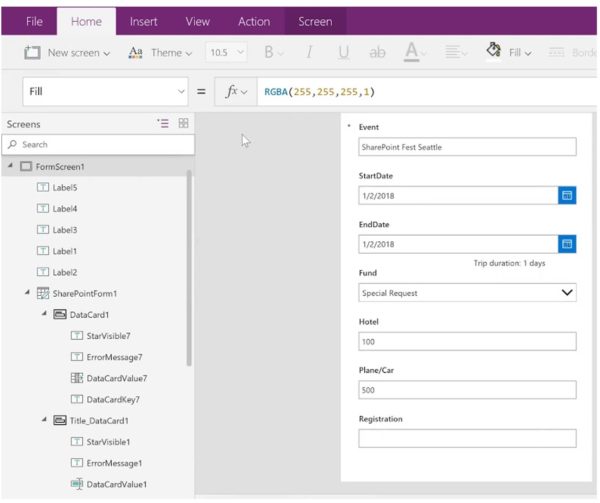
#2: Route Requests for Approvals
Forms created in Power Apps can then be connected to workflows in Power Automate, to route the completed form for approval to one or more stakeholders. Power Automate also requires no coding, and complex workflows with multiple decision points can be created with a few clicks. In this example, the form is routed to a stakeholder who receives a notification on his/her mobile device. They can quickly approve (or reject) and Power Automate will generate an email notification back to the original requestor informing them of the approval. Notifications and emails in the Workflow can be customized to have additional details, such as a link back to the original request to aid it being reviewed in detail. Imagine the time saved and ease by not having to have a manual or paper-based process.
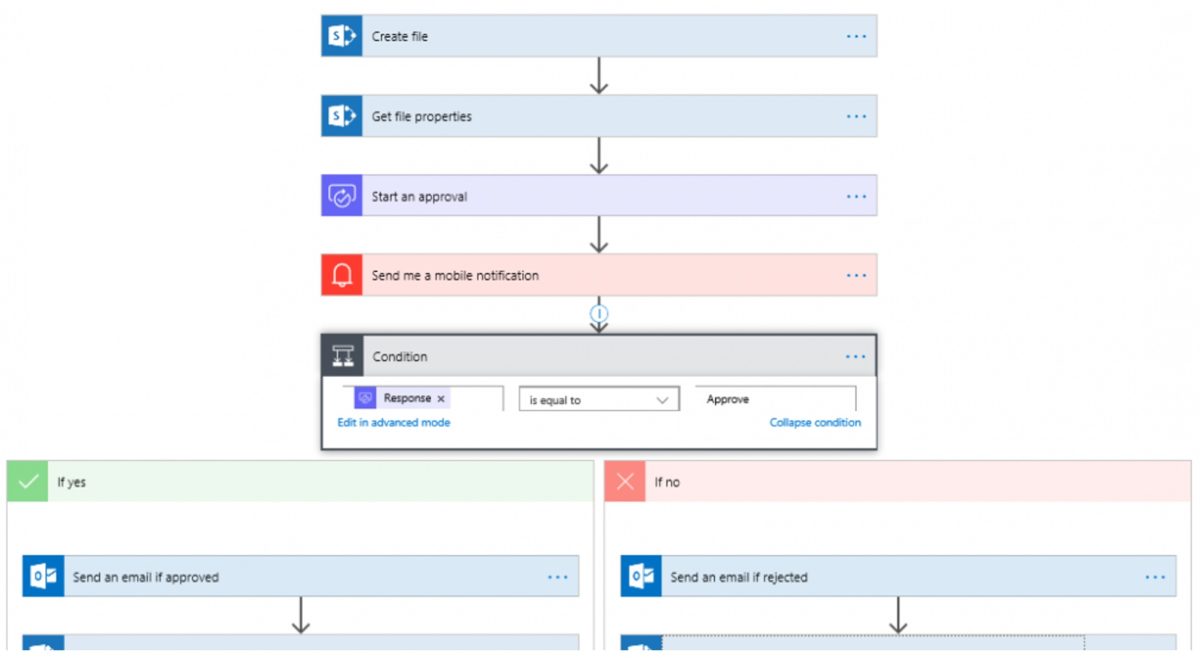
#3: Connecting Services Without Coding
Power Automate can also be integrated with other tools and technologies. You can create integrated systems instead of trying to manually stich together solutions across silos.
Easily create a workflow that publishes calendar items to Google Calendar, publish to social media such as Twitter or Facebook and save files into Dropbox. You can even place cards on a Trello board using Power Automate!
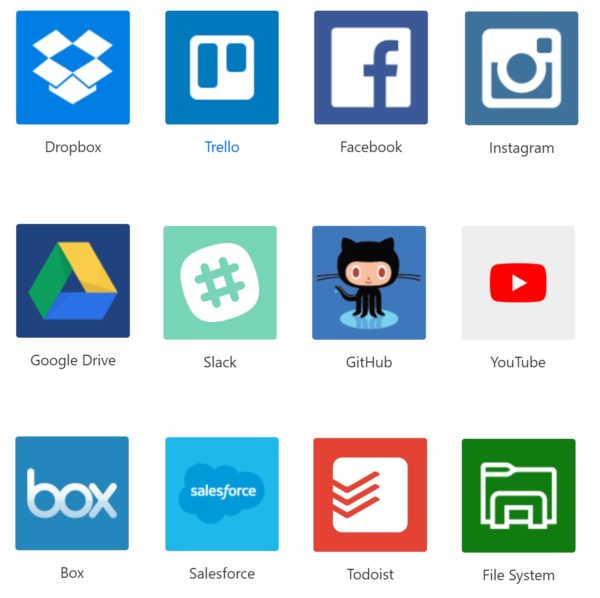
#4: Quickly Launch a Chat Bot
Utilizing Power Virtual Agents, you can create a chat bot for your website or internal applications to interact with people for troubleshooting or to perform operations automatically. This is incredibly powerful, and frees up your resources to work on more innovative solutions, rather than mundane repeatable tasks. You also have the ability to interact with your clients or employees nearly all day, reducing complaints or time to respond.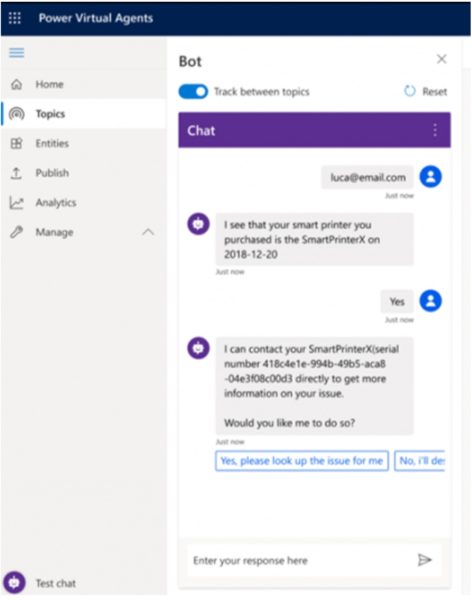
#5: Trigger large workflow processes at the touch of a button
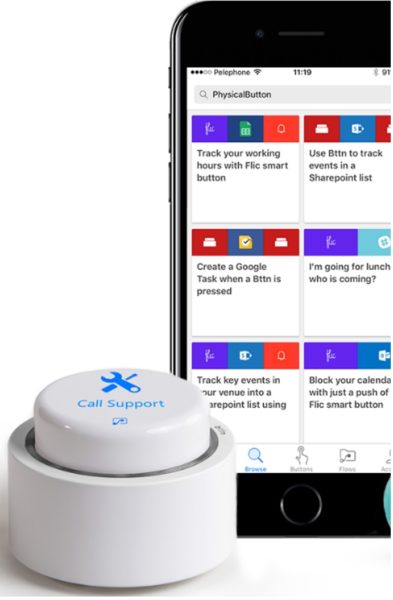 Because of all the integrations that can be done with the Power Platform, you can tie together large systems with many integrated parts, including elements outside of the Power Platform such as physical assembly lines or manual human-driven tasks, and trigger them at the push of a button.
Because of all the integrations that can be done with the Power Platform, you can tie together large systems with many integrated parts, including elements outside of the Power Platform such as physical assembly lines or manual human-driven tasks, and trigger them at the push of a button.
Imagine how a factory supervisor could have the ability to push a single button to start or stop a large factory-wide physical production line and immediately send several different types of email & mobile app notifications of the work stoppage/restart to employees, customers, and suppliers, all at the same instant.
The Power Platform can enable many things that will ultimately transform and empower your business. These were only a few examples. Contact Us to help you leverage these tools to create new business value for your company.





 Because of all the integrations that can be done with the Power Platform, you can tie together large systems with many integrated parts, including elements outside of the Power Platform such as physical assembly lines or manual human-driven tasks, and trigger them at the push of a button.
Because of all the integrations that can be done with the Power Platform, you can tie together large systems with many integrated parts, including elements outside of the Power Platform such as physical assembly lines or manual human-driven tasks, and trigger them at the push of a button.